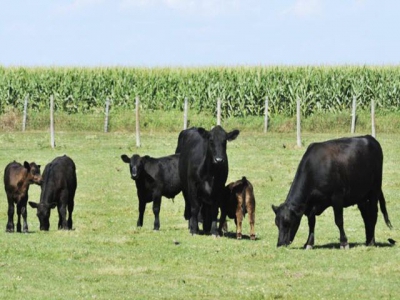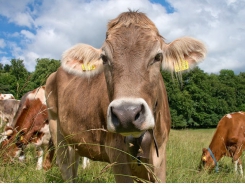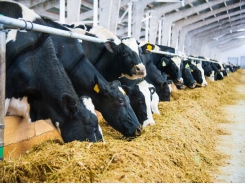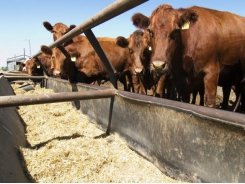Study Beefs environmental impact lower than perceived

New USDA study challenges widely reported assumptions about beef and carbon emissions.
A new study published recently in the journal Agricultural Systems is the most comprehensive beef cattle life-cycle assessment ever completed. In the report, titled “Environmental Footprints of Beef Cattle Production in the United States,” the researchers found that widely accepted measures related to beef cattle's impact in the U.S. are often overestimated.
The comprehensive life-cycle assessment, conducted by the U.S. Department of Agriculture’s Agricultural Research Service and the beef checkoff, was designed to scientifically quantify the sustainability of U.S. beef production. This was accomplished by collecting and examining feed- and cattle production-related data from more than 2,200 cattle producers in seven regional production areas. Conclusions were derived using a simulation model and the regional production data to estimate national impacts in greenhouse gas (GHG) emissions, fossil energy use, blue water consumption and reactive nitrogen loss.
Notable study findings include:
- GHG emissions -- Beef production, including the production of animal feed, is responsible for only 3.3% of GHG emissions in the U.S. This is dramatically lower than the often-misapplied global livestock figure of 14.5%. Furthermore, through continuous improvements in production practices, U.S. beef farmers and ranchers have avoided 2.3 gigatons of carbon emissions since 1975.
- Grain feed consumption -- Cattle consume only 2.6 lb. of grain per pound of beef carcass weight. This is comparable to feed conversion efficiencies of pork and poultry. Additionally, nearly 90% of grain-finished cattle feed is inedible to humans, meaning these plants can only provide value to people when they're upcycled by cattle into high-quality protein.
- Corn feed consumption -- Corn used to feed beef cattle represents only approximately 9% of harvested corn grain in the U.S., or 8 million acres. By comparison, 37.5% of corn acreage in the U.S. is used for producing fuel ethanol.
- Water use -- On average, it takes 308 gal. of water to produce a pound of boneless beef. Previous reports have estimated upwards of 24,000 gal. Additionally, water use by beef is only around 5% of U.S. water withdrawals, and this water is recycled.
- Fossil fuel inputs -- Total fossil energy input to U.S. beef cattle production is equivalent to 0.7% of total national consumption of fossil fuels.
"This life-cycle assessment delivers the most comprehensive and accurate assessment of the environmental impact of beef cattle in the U.S. to date," USDA researcher and study co-author Alan Rotz said.
The study assessed cattle production in the farm and ranch portion of the beef supply chain, including emissions associated with energy, feed, machinery, seed, pesticide and other resources used in production. Related work is in progress to assess production further down the supply chain, including in the processing, packing, distribution, retail, consumption and waste handling sectors. Together, these reports will comprise the most detailed and comprehensive assessment of U.S. beef's sustainability to date.
"This work produces baseline data the cattle industry can use to continue to improve the environmental and economic sustainability of U.S. beef," said Dr. Sara Place, study co-author and senior director of sustainable beef production research at the National Cattlemen's Beef Assn., a contractor to the beef checkoff. "Investments in this type of research demonstrate a continuous commitment to environmental stewardship by America's farmers and ranchers."
Related news
Tools

Phối trộn thức ăn chăn nuôi

Pha dung dịch thủy canh

Định mức cho tôm ăn

Phối trộn phân bón NPK

Xác định tỷ lệ tôm sống

Chuyển đổi đơn vị phân bón

Xác định công suất sục khí

Chuyển đổi đơn vị tôm

Tính diện tích nhà kính

Tính thể tích ao




 US: Efficiency, production challenges drive new role for…
US: Efficiency, production challenges drive new role for…  Cattle deaths prompt investigation, recall
Cattle deaths prompt investigation, recall